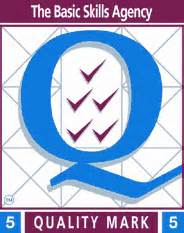Eco-Team - Laudato Si
Our Eco-friendly school has its very own Eco-Team. We recycle our fruit peelings and paper at school. Additionally, we ensure lights are turned off when we are not in class and outside doors are closed to keep the heat in. We work with the school community to maintain the school grounds and gardens. This year we have been working with Richmond Council to promote their 'No Idling' campaign. Please click here to see their campaign film.
In Laudato Si’ Pope Francis invites us all to:
“work with generosity and tenderness in protecting this world which God has entrusted to us”.
St Edmund's Eco team take on-board the Pope's invite to protect our world and actively recycle throughout the school. This year we will endeavour to achieve the CAFOD Livesimply Award.
The juniors regularly enjoy workshops from the charity CAFOD. The themes of the workshops focus on the Pope’s encyclical Laudato Si’. During these workshops we think about what we already do in our school to look after our world and what further action we can take. The children are given opportunities to think about ways that we can be responsible global citizens linked to Catholic Social Teaching - 'Care of Creation'.
Below are some ideas about how you can be more earth-friendly.
Save It
We all need to use energy in our everyday lives (electricity and gas are the most common) and water. The question is, can we try and use less? Why would this be good you ask? Well, most of our energy is created by using fossil fuels. When burned, these create greenhouse gases which contribute to global warming and too much global warming is not a good thing for wildlife, for us or for the planet.
Here are some possibilities:
- Think about all the times that you could save water or energy in your day.
- Switch off lights when you don’t need them.
- Ask your parent if you could use energy-saving light bulbs.
- Switch off the TV, computer, hi-fi, radio and any other electrical equipment when they are not needed. Don’t leave them on stand-by as it still uses electricity.
- Only fill the kettle with the amount of water you need to boil.
- Do your washing at 40 degrees (many washing machines now wash at 30 degrees)
- Take a shower instead of a bath. Showering uses half the amount of water than a bath, so you will save water and energy for heating the water.
- Put a brick in your toilet cistern so that less water is used to flush the loo.
- Turn the heating down slightly and wear more clothes if you’re cold.
- Make sure that curtains are closed once it gets dark, to help keep the warmth in.
- Remind yourself to do things like switching off the lights by putting a post-it note reminder by the switch.
- Make yourself a chart with sections for switching off lights, electrical equipment, taps, having a shower instead of a bath, or whatever other things you can do to help save water and energy. Give yourself a star each time you remember. When you’ve got, say 10 stars, you could give yourself a treat like some sweets, a magazine or your favourite pudding. Explain to your parents what the treats are for and they may be willing to help.
Bike, Bus or Walk
Try not using the car so much. Every time anyone drives a car fuelled with petrol or diesel, it puts greenhouse gases into the atmosphere, contributing to global warming. And, because we use our cars so much, governments keep building new roads – often through good bits of wildlife habitat. You can be part of the solution by using alternatives to the car wherever possible.
- For one week, note down all the journeys you make, and how you make them.
- Every time your journey involves a car, think about whether there is an alternative way you could travel. Could you have walked? Could you have cycled? Could you have got a bus? Could you have shared a lift with a friend? Write down the alternatives.
- Where possible, change your habits. You probably can’t always choose how you travel, so you may need to persuade other people in your family to think about alternatives too.
Notes: - If you have to use a car, try to make sure there’s more than one passenger. If your friends are going to and from the same place, you could maybe share a lift. Remember to make sure your parent knows what you are doing.
- Think about other journeys that you have taken, or are planning, not just what you are doing in one week.
- Sometimes there really is no good alternative to using the car because the journey is too far to cycle or walk, and there is no public transport.
Reduce, Re-Use and Recycle
Across the world, more and more wildlife habitat is being destroyed to make things for people, much of which ends up as rubbish in landfill sites or rubbish incinerators. You can help by making sure you find ways of reducing, recycling and re-using the rubbish you throw out.
- Your council is responsible for collecting your household waste from dustbins and wheelie bins and for providing recycling sites. Find out what they recycle – which bins do they provide and do you use them, where is the nearest recycling point to you and what can you recycle there and whether your local supermarket has a facility and what can you recycle there
Try some of the following ideas to encourage you -
- If you have a compost heap outside, put fruit and vegetable peelings, teabags etc into a plastic bin or container ready to take out for composting. You could decorate it to look like a frog, or other animal with a big mouth to make it more fun.
- Instead of throwing out old clothes and toys, keep them ready for one of those plastic bags which come through the letter box from charities, or take them to the nearest recycling point.
- Keep a ‘paper only’ box by the waste bin in rooms where a lot of paper is used so that it can be recycled – put old newspapers in there too.
- Aluminium can be worth some money. The school could collect aluminium drinks cans to raise money.
- If you use a computer, make sure you keep the printer stocked up with paper that has already been used on one side. Only use new paper when you have to and encourage your school to do the same.
Notes:
- You may need to persuade other members of your family that it is important to recycle and not just throw rubbish away.
- Think how you could have avoided getting some of the rubbish. You can sometimes buy things with less packaging or take bags for life with you when you go shopping rather than getting new ones each time.
- You could also make a difference when you are on holiday. Why not do an audit when you get to your holiday destination and find out what recycling facilities there are etc. If you are going on a self-catering holiday or abroad, pack some bags for life in your suitcase as in some countries the shops don’t offer carrier bags etc.
Being Environmentally Friendly
How we live our lives affects wildlife. We turn on a tap and the water that gushes out may have been taken from a marshy place, making it just that little bit drier and less suitable for wading birds.
If we throw away a tin can instead of recycling it, more metal needs to be mined, perhaps eventually destroying a wildlife habitat.
When you switch on a light, the electricity may come from a coal-burning power station, which releases gases into the air that contribute to global warming – the biggest threat faced by wildlife in the future.
e can help wildlife by being more environmentally friendly in the way we live our lives – using fewer resources and less energy.
Composting
Setting up a compost bin or heap. By doing this you can reduce the amount of rubbish you put out for collection, and also provide a good habitat for wildlife in your garden. Compost heaps attract insects and other invertebrates, which provide food for birds. And if you have an open pile and you’re very lucky, you may get hibernating grass snakes or a hedgehog.
Some people really get involved in composting and set up deluxe systems where they stockpile different ingredients and then layer them up to form the best possible compost. Here is some basic information, but there are other organisations who could help you with this.
You’ll need a container to put your compost in. It needs to have no base and you need to put it onto bare soil or grass so that any liquid drains into the ground. It needs a lid to stop rain getting in. A wooden box without a bottom but with a lid, made out of planks of wood, is ideal. Alternatively you can buy a plastic compost bin from a garden centre, or sometimes, more cheaply, from your local council.
Things you can compost:
- Fruit and vegetable peelings and garden waste.
- Grass clippings are good, but you should not add more than a 10 cm layer at once.
You should avoid:
- Meat
- Cooked food
- Diseased plants
- Woody pruning’s, unless shredded
- Weeds with seeds.
Collecting Litter
Leaving rubbish around can cause all kinds of injuries to wildlife. Small mammals like voles and shrews get trapped and die in empty bottles. Birds get their legs and necks caught in the plastic rings that hold cans together. Foxes cut themselves scavenging from food cans. As well as this, litter looks a mess.
You can help, firstly by not dropping any. And secondly, by going out and clearing it up.Find somewhere that is safe for you to work and where there is a litter problem, for example, a local pavement, footpath or park. You might like to collect litter in a local nature reserve. Contact the warden of the nature reserve to ask for permission first. Make sure you put on your gloves before starting to collect litter.
- Decide where to get rid of the litter. Recycle as much of it as you can. You may find it easiest to collect into different bags for paper, glass and metal (Do not collect broken glass). Alternatively, you can sort it at the end. If you are expecting to collect a lot of rubbish, then contact the local council (look for their number in the phone book or internet) and arrange for them to pick it up for you. Otherwise you may need to get someone to take it to a council refuse tip.
- Get together a group of helpers. You might like to make it more fun by organising a picnic or barbecue afterwards. Don’t forget soap and water for washing hands.
- The best time to collect litter is late summer or autumn, as earlier in the year you could disturb nesting birds, especially if you are clearing under hedges and trees
Ways to Help at Home with your Family
There are lots of ways to help our environment and easy to get on the path to greener living but the best earth-friendly practises require the co-operation of everyone in your household. So how do we reduce, reuse and recycle the other basics of environmental responsibility?
As with most good habits, the best way to teach is to be a good role model yourself. By showing that you care about and respect the environment, your friends and family will do the same.
Respect for outdoors: this can start in your own back garden. Help plant a garden or a tree. Set up bird feeders, bird baths and bird houses. Make it your job to clean out and refill the bird bath daily and clean up any seed debris around feeders and re stock them.
Recycle: recycling is easy and in some communities it is mandatory. Some places allow co-mingling (where all recycling items can be placed into one container) where others require sorting into separate containers. Separate bins can be needed for plastic, glass, paper and one for cans/tins. Could you rinse and place them into the correct bins and take them outside for the bin people to collect on a weekly basis?
Drink your own water: bottled water can be expensive and experts say it is not any cleaner or safer than your own water at home. In fact, most bottled water is tap water which has been filtered. Would it not be better to add a filter to improve its taste in reusable and clean bottles?
Clean Green: did you know many natural products can replace commercial products? Here are just SOME examples…
- To deodorise carpets, sprinkle with baking soda, wait 15 minutes and vacuum up.
- Use vinegar and baking soda for everything from oven cleaning and drain clearing to stain removal and metal polishing.
In our day to day activities, we can encourage others to limit waste, cut down on electricity, avoid unnecessary purchases, and reuse items you may already have. Here’s how…
Conserve Energy: remind others to turn off lights that are not in use, power down computers, turn off the TV when no one is watching it and try not to linger in front of your fridge with the door open.
Hoof It: could you ride your bike to school? Travel by bus or simply walk to school? If you think you can ENCOURAGE IT! If safety is a concern, consider organising a “walking bus” – this allows children to walk/ride to and from school under the supervision of an adult.
Let There Be (More) Light: older children could learn how to replace regular light bulbs with energy saving light bulbs. Compact fluorescent light bulbs provide the same light output as normal bulbs, but they last longer and use a fraction of the energy.
Reuse – Recharge: buy rechargeable batteries for your electronics and toys and ask an adult to show you how to care for and recharge them. This reduces garbage and keeps toxic metals, like mercury, out of landfills.
Pass it on: gather toys, books, clothes and other things that you no longer use or want, and donate to local charities.
These are just some ways to get you and your family to become more earth-friendly. Once you try a few of these, challenge others to come up with new and interesting ways of going green.









